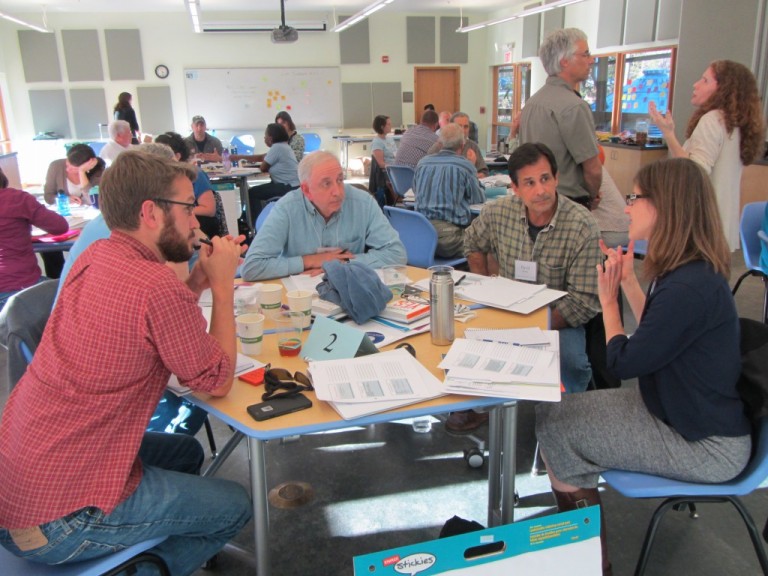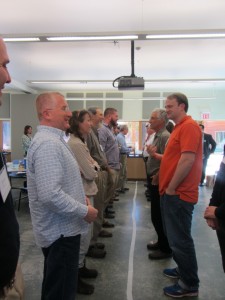Training Stewards to Build Capacity for Watershed Management
January 12, 2016
On December 15th and 16th, Michele Drostin, ERP research associate, along with other members of the NC Watershed Stewardship Network (WSN), facilitated a workshop titled Tools of Watershed Management.
The event, held at the NC Botanical Garden in Chapel Hill, was attended by twenty-two people including city/town staff, watershed organization staff/volunteers, and community leaders. Participants were seated in groups with similar watersheds of interest in order to encourage planning and management strategies.
The first day’s activities centered around answering the question, “why do we work at the watershed level?” Sessions addressed characterizing your watershed, engaging communities and forming partnerships, and setting goals and management strategies. Attendees engaged in small group activities to practice developing watershed goals and management strategies to address environmental, social, and programmatic needs.
 The second day began with case studies of three different watershed planning implementation efforts from Robeson Creek Watershed Council, Ellerbee Creek Watershed Association, and Smith Creek Watershed Effort. Learning from others’ experiences readied attendees to begin thinking about their own watershed plans. The workshop concluded with a session on action planning which allowed participants to review the information from the workshop and develop an outline for action in their watershed.
The second day began with case studies of three different watershed planning implementation efforts from Robeson Creek Watershed Council, Ellerbee Creek Watershed Association, and Smith Creek Watershed Effort. Learning from others’ experiences readied attendees to begin thinking about their own watershed plans. The workshop concluded with a session on action planning which allowed participants to review the information from the workshop and develop an outline for action in their watershed.
Participants expressed an increased understanding of watershed management and methods for implementing a plan in their own watershed as a result of the workshop, which was made possible with funding from the Wallace Genetic Foundation and planning from the NC Watershed Stewardship Network. “There were twenty-two participants and ten trainers, and we all came away from the experience with new ideas and a broader understanding of how to work at the local watershed level,” said Drostin. The training team looks forward to using feedback from this workshop to inform the planning of future professional development opportunities for watershed stewards.
